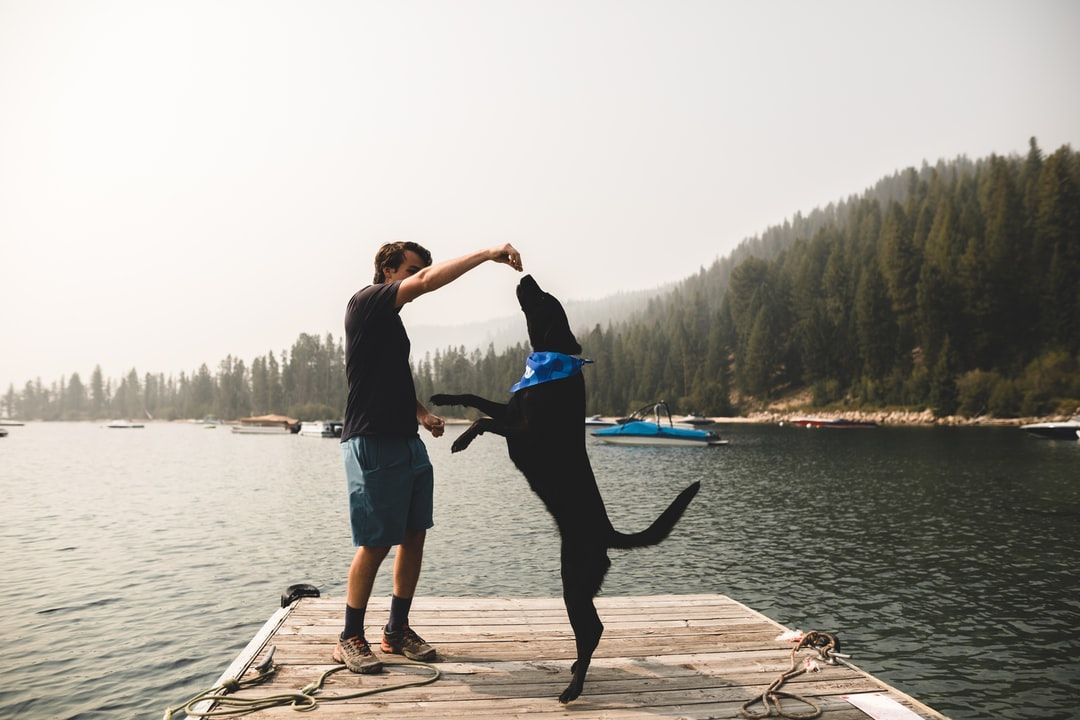Finding a qualified trainer should be an easy task, nevertheless it as not as straightforward as you'd think. Unbeknownst to many, the dog training world is currently unregulated. This means that absolutely anyone can call themselves a dog trainer and charge for it, with no legal repercussions. Thus, the responsibility of finding the ideal trainer can be incredibly daunting, however, there are things to look for to ensure that you make the right choice. This blog is going to consider how you can choose the right trainer for your dog and why this is critical to your dog's welfare.
Firstly, it's important to ask a potential trainer, questions about their experience and qualifications. Surprisingly, I have never been asked by any of my clients if I have qualifications in dog training. It seems many would assume that if you train dogs for a living, you must have qualifications to do so, but sadly this is not always the case.
Many may feel they are being rude to ask such questions, but trainers that are taking the time to study and obtain qualifications will be more than happy to discuss their expertise and experience. In fact, the only time a trainer will take offence, is if they haven't got any qualifications in the first place. Since you are hiring a trainer to help you and your dog, you have every right to ensure you are hiring a qualified professional.
“Great dog trainers have broad skills, not inflexible ideologies."
Ralf Weber
Ralf Weber

It’s also important to enquire about the training methods used and what happens if your dog gets something wrong. You can quickly identify red flags on trainer's websites when you read terms such as, "pack leader", "be the alpha", "corrections", "dominance" and "discipline".
The theory regarding the alpha has long been scientifically debunked by the very scientist that introduced the theory. Nevertheless, it continues to be promoted by some trainers that use it to justify punitive methods.
More often than not, this is true of self-proclaimed trainers, since most recognised education providers in the dog training world, only promote reward based training, which has been scientifically supported as the most effective and humane approach to behaviour modification. This has finally been recognised by the American Veterinary Society of Animal Behaviour, who have introduced a new position statement which states, “Based on current scientific evidence, AVSAB recommends that only reward-based training methods are used for all dog training, including the treatment of behaviour problems."
" The love of a dog is a pure thing. He gives you trust, which is total. You must not betray it."
Michel Houellebecq
Michel Houellebecq
Therefore, it's imperative to your dog's welfare that you hire a trainer that only uses kind and ethical training methods. Unfortunately, it has become apparent that many punitive trainers are advertising that they use positive reinforcement in an effort to rebrand punitive methods and attract unsuspecting clients. Nevertheless, if a trainer is instructing you to train your dog in a way that seems detrimental to your dog's welfare, trust your instincts and find another trainer. Love should move you to defend your dog and protect their welfare. Neglecting to do so, can betray your dog's trust and damage your relationship.
Training should always be free from positive punishment and aversives such as lead corrections, use of slip leads, choke chains, E collars and alpha rolls. If trainers promote such cruel methods, it is clearly evident that they do not have a thorough knowledge of Canine behaviour. If they did, they would recognise the behavioural fallout and emotional damage such methods cause and would avoid them at all costs.

"Our prime purpose in life is to help others. And if you can't help them, at least don't hurt them."
Dalai Lama
Dalai Lama
Finally, ethical and qualified trainers will have your dog's best interests at heart. This means that that they should establish a history to determine the potential reasons behind a behaviour before creating a behaviour modification plan to help your dog. They will want to develop a friendship with your dog and train using rewards particularly special to them. If the trainer you hire blames dominance, a lack of respect or disobedience as reasons for your dog's behaviour, you can guarantee the training will not help your dog in any shape or form. The training should never be focused on stopping behaviours, it should always endeavour to teach new ones, in order to focus on the positives and work as a team to accomplish new goals.

"Effective training is a partnership between you and your dog based on trust, love and science. Strengthen your bond and train force free!"
Kathy Sdao
Kathy Sdao
To be a dog trainer is a privileged and trusted position. It involves empathy, kindness and a true passion to pursue more knowledge and skills, in order to effectively help dogs and their families. Your dog deserves the very best, thus you should strive to hire a trainer that will not only help your dog, but ultimately strengthen the close bond you share.
Start Your FREE Skill-Hub Trial Today
Commitment Free 3 Day Access
Canine Principles' Skill-Hub allows unlimited* access to ALL self-study courses, workshops & webinars.
*Requires Monthly Subscription. See Skill-Hub Subscription Page For Details.

